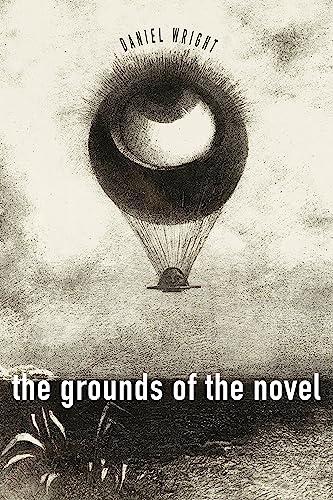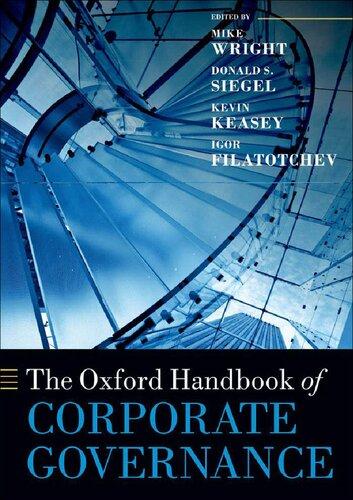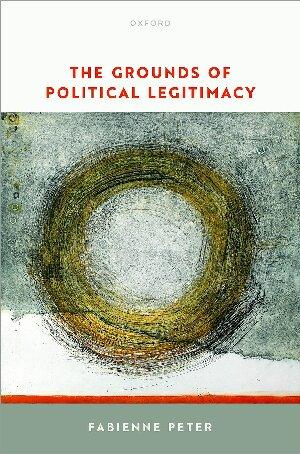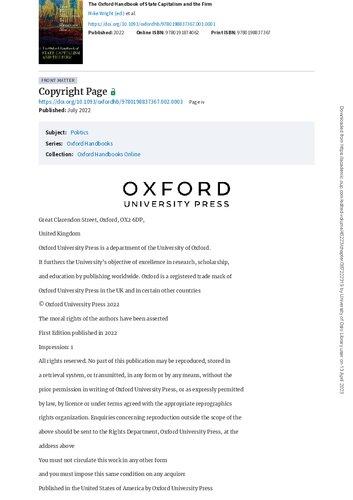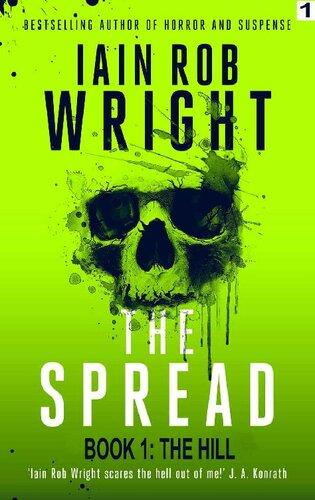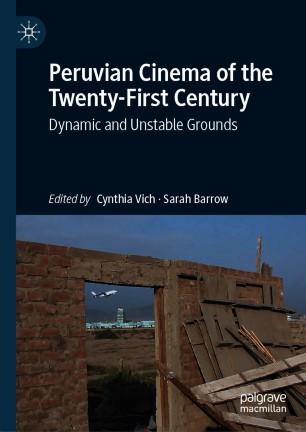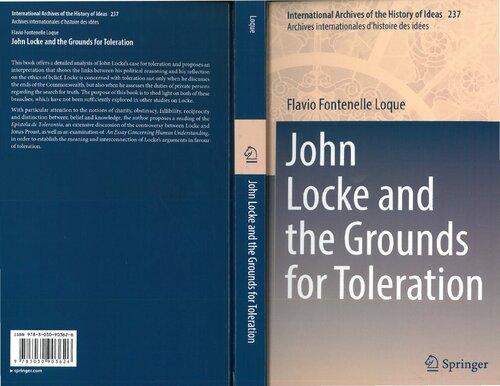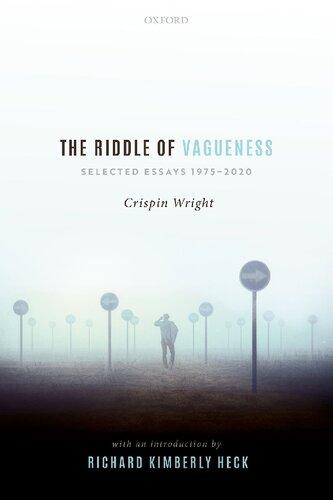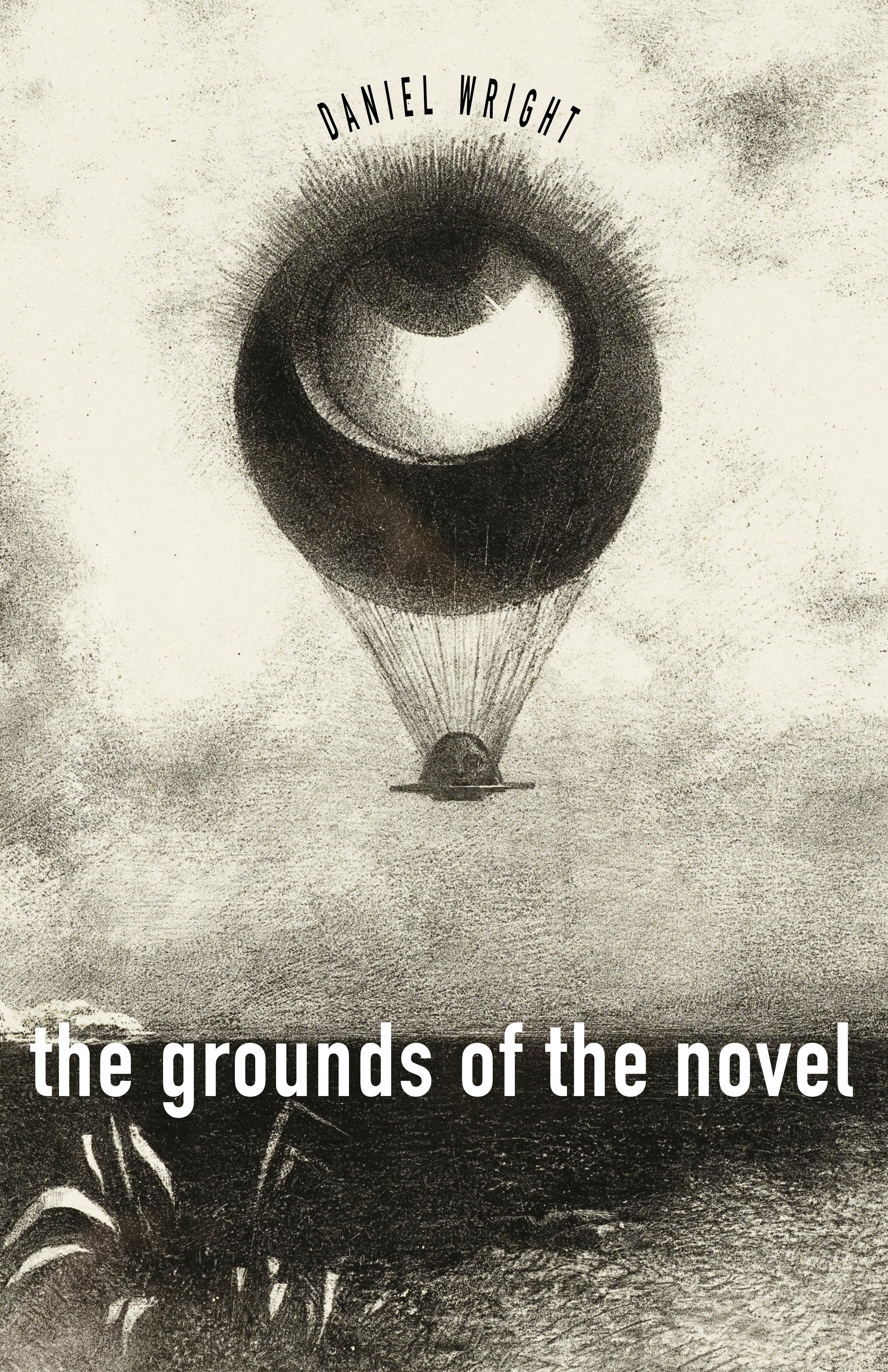The Truth of Earth
I am seeking a ground upon which to know that fictions are real.
I have never sought to know whether Pegasus exists, a question that has sometimes preoccupied philosophers. There he is, I’ve always thought, right there where I can see him, a winged majesty, his feet just lifting off the ground.
In Daniel Deronda (1876), there’s a horse named Primrose who falls and breaks his knees.1 Primrose does not lift off the ground; he breaks against it. There are horses where I live, in reality, and the ground underneath them is hard and unforgiving. The horses here are bound to the ground by gravity. Even a leap is a danger.
I don’t wonder much about Pegasus, but I do wonder about Primrose, who seems so much like a real horse. Primrose exists, of that much I remain certain. George Eliot conjured him. There he is, in the novel, and that is enough for me. But I seek to know about the manner or the texture of his being and the being of the ground that
breaks him. Does he only borrow his reality from the horses I have seen and known, and must he pay it back? Or is Primrose’s being his own, sufficient, even unto death?
The question then turns back upon Pegasus. He is mostly a horse, I must admit, but he wings away and leaves the ground behind, while Primrose buckles and falls upon the ground. Are those two grounds the same? Or does being in the realist novel, where horses don’t have wings, have a particular texture, different from the textures taken by being in myth or in romance or in lyric?
I am seeking the ground upon which Primrose breaks his knees, the ground that sustains him and kills him, the ground upon which to know that he is real, the ground where I might stand and feel the thump of him as he falls.
I can only find the ground that I seek, the ground upon which Primrose breaks his knees, by reading Daniel Deronda closely. It is only there in that novel that it can be found.
If I want to know about being in the actual world, where actual horses run and leap and fall, I should become a metaphysician. If I want to know about being in the novel and about the ground upon which unreal horses like Primrose stand, I should become a novelreader, or better yet, a novelist.
Metaphysicians seek grounds for being too, and sometimes with a method we might call novelistic. Walter Pater marveled at how Plato, even as he pursues the most abstract metaphysical questions (what is being?), populates his dialogues with the concrete details of everyday life, a way of grounding the strangeness of metaphysics upon familiar territory. It is the “impress of visible reality” in his dialogues that makes Plato something like a novelist: his talent
at rendering ordinary life has “a touch of the peculiar fineness of Thackeray. . . . Plato enjoys it for its own sake, and would have been an excellent writer of fiction.” 2
“Would have been”? Pater shies away into the conditional tense, and I wonder why. Perhaps it’s that while Plato does write fiction, it’s only as a counterpoint, a bass line, to his metaphysics. Strangely, fiction, even in all its unreality, makes a solid ground for philosophy. Plato paints the details of his fictional world “as if on the margin of his high philosophical discourse, himself scarcely aware, as the monkish scribe set bird or flower, with so much truth of earth, in the blank spaces of his heavenly meditation.”3
I am seeking the truth of the novel’s earth.
I am seeking the ground of the novel, which is made or found in blank spaces, which fills up empty margins.
Perhaps I seek all of this because I am drawn to margins, or because I want to understand the violence of being marginalized. When people in a novel look to the ground, when narrators point our attention to that empty margin of their world, it is often because they want to get free of a constraint, because they desire to imagine being otherwise, being loosened, being between real and unreal, being unbinarized.
To draw myself toward the blankness just underneath the novel’s world is difficult. Novels are so full. How can I want to empty them?
To turn in that way, to make myself turn that way, away from the people and places of the novel and toward its being, is an erotic training. I train my desires as Pater says that Plato trained his, to
become “a lover of the invisible, but still a lover, and therefore, literally, a seer, of it, carrying an elaborate cultivation of the bodily senses, of eye and ear . . . into the world of intellectual abstractions; seeing and hearing there too, . . . filling that ‘hollow land’ with delightful colour and form.”4
I desire the hollow land that the world of the novel fills. I seek to hollow the novel and see what remains.
Willa Cather fantasized about it too: “How wonderful it would be,” she writes of the realist novel, “if we could throw all the furniture out of the window . . . and leave the room as bare as the stage of a Greek theater.”5 But then how would we live and move and find our way in what Cather calls in the title of her essay “The Novel Démeublé”— only a bare ground and nothing more? Upstage and downstage we could orient ourselves, but to what end? Our survey of clear ground complete, the sigh of relief exhaled, how do we put the furniture back in its place?
I seek to know how the novel, like Plato’s dialogues, gives “an illusive air of reality or substance to the mere nonentities of metaphysic hypothesis.”6 When Cather calls the novel a room, when she says that if the room were emptied it would become like an empty stage: those are metaphors of fictional being. An air of substance: that is a metaphor of fictional being too. By the art of metaphor we give the nonentities of the novel something like substance; we ground them; we make substance of an air.
In Jane Austen’s Pride and Prejudice (1813), Elizabeth Bennet surveys the grounds of Pemberley and slowly feels herself overcome with the knowledge of her love for Mr. Darcy. Her eyes become unable to see the specific “objects” that her aunt and uncle point
out to her, until finally we’re told that “she distinguished no part of the scene,” which is maybe a way of saying that suddenly she can only see its disorienting wholeness, details stripped away, what we’ll see Hardy later on calling a “form without features,” only the ground upon which she and Darcy both stand, or the empty stage upon which “the scene” is playing out.7
As Elizabeth’s eyes cease to distinguish this from that, so that all around her becomes a scene with no parts, her mind goes out not to Darcy himself but to the spot to which he is always attached even as he moves closer or farther away: “Her thoughts were all fixed on that one spot of Pemberley House, whichever it might be, where Mr. Darcy then was.”8
I am seeking the spot, whichever it might be, where Mr. Darcy then was, and now is.
But if I fix my thoughts on that spot, I am doing something different than Elizabeth. I cannot go to that spot as she does, and yet Austen makes sure I know that it is there. Mr. Darcy exists more vividly for me because there is a spot where he is.
Austen is so careful with her prepositions, so careful to conclude her sentence with the existential verb, “was”: Elizabeth’s thoughts are fixed “on” the spot, but we don’t know if Mr. Darcy is on it or in it, attached to it by his feet or by his whole essence or just by language. It doesn’t matter whether he’s in the sitting room or the kitchen: that one spot, whichever it might be, is always where Mr. Darcy then is. The spot is where he is and therefore the spot is how he is.
I am seeking the placeholder, the blank space, the hollow land, by which Austen and Elizabeth Bennet locate Mr. Darcy with their
thoughts, or maybe by which they make him real, giving him an air of substance, even when he exists only in their thoughts. Why can’t he float free? Why put him on the spot?
There is the spot where Mr. Darcy is. There is the ground and Primrose breaking his knees. There is the truth of earth. There is. Or as Emmanuel Levinas says, “This impersonal, anonymous, yet inextinguishable ‘consummation’ of being, which murmurs in the depths of nothingness itself we shall designate by the term there is. The there is, inasmuch as it resists a personal form, is ‘being in general.’ ” 9
I seek the spots in the novel where fictional being is consummated— where the there is of “being in general” can no longer resist a personal form. There is. There is the spot. There is the spot, whichever it may be. There is the spot, whichever it may be, where Mr. Darcy now is.
“A presence of absence, the there is is beyond contradiction; it embraces and dominates the contradictory. In this sense being has no outlets.”10 I seek the ground of the novel, the fictional there is, “a density, an atmosphere, a field” that embraces and dominates the contradiction of “real” and “unreal.” When I enter the unreality of the novel, I am not exiting being, which has no outlets. I am moving in a different way, between modes or registers of being, between frameworks for talking about being.
If Pater looks to the margins of Plato’s metaphysics to find the truth of earth that ornaments it, I look to the novel and find metaphysics in its margins and at its edges, planted in its earth: its spots, its ground, its groundwork, its underground, its meeting grounds.
I seek the support of the novel’s ground, but I am alien to its way of being. Is it like a yoga class, when I’m told to lay on my back and feel the earth rising up to meet my breath? How difficult it is to follow that instruction truly, what efforts of careful but relaxed attention it requires, what guilty admission of how often I spurn the ground by ignoring its solidity, or assuming that its support is passive rather than active. There are those times, too, when I intellectualize, keenly aware that it’s not the earth I’m lying on but a floor on the second story of a building that holds me suspended in midair. And after all, it’s some more pervasive but invisible energy, the force of gravity, that only barely holds me flat. Isn’t it strange, this precarious balance between pressure and ease that allows me to lie there, a whole and breathing body, without becoming crushed, and without simply floating upward, gasping for air?
I am seeking the novel’s metaphors of fictional being. I am seeking the novel’s air of substance. I am seeking a ground upon which to know that fictions are real.
This page intentionally left blank
The Grounds of the Novel
This page intentionally left blank
On What There Is in the Novel
Pegasus was the beginning of this book.
W. V. O. Quine’s essay “On What There Is” (1948), a fieldshaping work for modern metaphysics, denies Pegasus’s existence, and I’ve always been enraged by that denial. I can see now that I began writing this book to explore that rage and maybe to locate its source. It was connected, I vaguely knew, to the moment I first read Quine’s essay as a queer philosophy major, probably twenty years old, being initiated into a field that seemed to me oppressively straight in its style of thinking, so precise and so inhospitable to the meandering lines of thought I desired more than anything. Pegasus is a metonym in Quine’s essay: his nonexistence stands for the nonexistence of all Pegasus’s fellow fictional beings too, and the nonexistence of the fictional worlds in which they live. I who had known fictional beings, I who had been to fictional worlds, could not follow in Quine’s certainty that they don’t exist, or that when we talk about existence we really must limit ourselves to actuality.
That was the beginning of this book: a young queer person wavering between philosophy and literature; a feeling that a certain
mode of philosophical argument constrained the category of being in a way that made me panic, that foreclosed the paths I wanted to follow; a sense that I must defend Pegasus against Quine and his ilk; a burning, ireful conviction that if I allowed Quine to deny the existence of Pegasus, he would come for me next. If unreal beings didn’t exist, then what became of me? or, at least, what became of the queer parts of me that felt both electrically real and also always existing under threat of derealization? Quine’s essay was macho, aggressive, unquestioning, confident. I desired mess and not the sharpened clarity prized by philosophy. Pegasus couldn’t speak back, certainly not in that kind of language, and neither could I.
But there’s a twist to Quine’s argument that offered even me a way in, and that allowed the essay to remain present to me all those years, something that could rankle in my mind, difficult simply to expel. While Quine argues with imposing certainty that no, fictional beings such as Pegasus do not exist, he also includes in his essay two counterarguments, each delivered by a fictional character invented as if to be given the opportunity to speak in defense of his own kind. First, the fictional philosopher McX brings out an old saw, what Quine calls “the old Platonic riddle of non-being.”
If Quine can deny the existence of Pegasus, there must in the first place be something called Pegasus for him to cast out into the void of non-being, and so by denying Pegasus’s existence, Quine inadvertently affirms it: “Non-being must in some sense be, otherwise what is it that there is not?” Quine finds this line of argument frustrating. McX claims, Quine laments, “that I refuse to recognize certain entities.” But Quine refuses the very terms of the accusation: “I maintain that there are no entities, of the kind which he alleges, for me to recognize.”1 McX says that Pegasus exists because “Pegasus is an idea in men’s minds.” Quine says that “the mental entity is not what people are talking about when they deny Pegasus,” and that even McX “cannot . . . persuade himself that any region
of space-time, near or remote, contains a flying horse of flesh and blood” (22). Because McX himself is a fiction, a “mental entity” like Pegasus, Quine has an advantage here. He gets to speak on behalf of “people,” and to declare that “people” don’t think figments of the imagination count when it comes to talking about being. But what about those of us disagreeing with Quine and pitying McX? Quine claims to speak on my behalf, and it’s at this point in my reading that I become claustrophobic, wanting nothing more than to escape the conditions of existence that Quine foists upon me.
The fictional philosopher Wyman then enters the scene. Quine thinks that McX’s argument is ridiculous, but he has high hopes for Wyman, whose way of thinking is “less patently misguided.” Quine remains committed to getting rid of Pegasus, no matter what either of these fictional people has to say about it; it’s only that Wyman’s kind of argument may be “more difficult to eradicate.” Wyman suggests that fictional beings such as Pegasus exist in a different way than the entities of the actual world exist. We might even use a different word, saying that while both have being, Pegasus subsists as opposed to the real horse who exists (23). While we real beings are actual and determinate, Pegasus is an “unactualized possible” (22). Nevertheless, Pegasus is.
Two fictional characters written into a philosophical essay partly about fictionality ask that fictional existence (i.e., their own) not only be recognized but recognized sensitively, with a close attention to its texture and its temporality. We might need a finer-grained vocabulary of actuality and possibility in order to grapple with Pegasus, or with Wyman— or so Wyman himself claims from his place in the realm of the unactualized. It strikes me as especially callous, then, when Quine brushes aside Wyman’s promising argument with a sneer. Wyman’s theory is unacceptable, Quine argues, because inelegant, perhaps even a threat to law and order; it generates an image of a “bloated universe,” “overpop -
ulated,” “unlovely,” a “slum of possibles,” “a breeding ground for disorderly elements” (23). Quine’s metaphor, by which admitting fictional beings into existence leads to a dangerous overpopulation, and by which the metaphysician acts as a border guard who protects the territory of “what there is” from the huddled masses of the unactualized, is strikingly moralized and politicized. 2 Quine is terrified of an uncontrollable incursion, the endlessly proliferating mass of “possible men” he suddenly sees accumulating in his doorway. “Are they the same possible man or two possible men? How do we decide? How many possible men are there in that doorway?” he asks, like someone in a gothic novel beset by ghosts (23). He thinks that Wyman’s ontology implies possible beings intruding everywhere at once, overrunning the boundaries of their slum, but that is nowhere in Wyman’s argument, which allows for different modes of being: Pegasus and those possible men “subsist” rather than “exist.” They are just fine in their fictional world, which clearly doesn’t have the same limitations as ours when it comes to space.
Who said that Pegasus wants to invade our world? Who said that all those infinite possible men want to squeeze into Quine’s doorway? Following Quine’s argument, these imagined threats seem ridiculous to me, and yet he takes them so seriously, understanding his duty to be the thinning of the herd of those who count as beings. We could try to “rehabilitate” Wyman’s wayward metaphysics, Quine concludes, but “I feel we’d do better simply to clear Wyman’s slum once and for all.” We could try to police Wyman, to keep his fictional world over there, cordoned off from our actual world over here, but Quine is satisfied with nothing short of annihilation.
This book began because I read Quine’s essay and felt its cruelty. But then, how can one be cruel to fictions, really? Quine has a point, I sometimes think: whether we decide that Pegasus or Wyman or any possible man exists or not is a mere philosophi-
cal exercise. Nothing is truly at stake here beyond the deciding of some questions about the proper job of metaphysics. For Quine, that job is to answer the question, “What is there?” (21). But if that factual question initially seems in Quine’s account so dispassionate, then how do we get to Quine’s metaphor of the disorderly slum and his anxiety about those possible men who haunt his doorway? The French philosopher Étienne Souriau, whose Different Modes of Existence appeared several years before the publication of Quine’s essay, already recognized the cruelty of the metaphysician who would cast “beings of fiction” out of reality, describing fictional beings as those “fragile and inconsistent entities” who “have been chased, one after the other, from every controlled and conditioned cosmos.”3 And Bruno Latour alludes to Souriau’s work in his similarly titled An Inquiry into Modes of Existence (2013), where he argues that fictional beings “possess full and complete reality in their genre, with their own type of veridiction, transcendence, and being.”4 In the line of thinking that runs from Souriau to Latour, we find a powerful alternative to Quine’s exile of fictional beings, but for all their passionate defense of the fictional, their work includes no analysis of works of fiction. Novels remain for Souriau and Latour hypothetical objects. Or in other words, they still focus on the “in or out” question, except that, as opposed to Quine, they argue for the “in” camp. 5
If I identify with Wyman’s plea for recognition, it’s because Quine himself makes me see what’s at stake in Wyman’s exclusion from being: terror, disgust, exile, control. The question of existence, even when it comes to fictional being, even when it is framed as a simple problem of sorting and listing, comes attached to moral and political positions as to who is allowed admission into jealously guarded spaces and categories, about the distribution or hoarding of a limited resource called being, and about the extension or refusal of recognition.
This book began because I began to think that if Wyman fails to defend his own being against Quine’s determination to eliminate it, that’s because Wyman is an intentionally impoverished fiction, designed to serve a narrow function, to speak briefly and unsatisfactorily on the “in or out” question of being before being dispatched, never able to tell us what his fictional being feels like. Does it feel empty, like living in a vacuum, or does it hum with its own kind of unaccountable fullness? Maybe philosophy wasn’t the right context for thinking about the question of fictional being. Maybe instead I should look to novels themselves, not as developing a defense of fictional being against the possibility of its extermination but rather as doing their own thing, imagining being their own way, gloriously indifferent to Quine’s interrogation. I think of this indifference as a mirror image of the reader’s “ontological indifference,” which Catherine Gallagher describes as key to the slow historical process of fictionality’s coherence as a category distinct from lying. “Willingly entering the language game of fiction,” she argues, “enables a psychological state of ontological indifference, a temporary disregard for the fictional conditions of the pleasurable sensation.”6 But where Gallagher’s reader is secure in their reality, able to offer their reasoned and willing consent, to exchange their ontological sensitivity for pleasure only temporarily, disregarding rather than acknowledging that their real pleasure is caused by something unreal, I wonder about how the novel sometimes asserts its own ontological distinctness as a resource rather than understanding it as an embarrassment it must bribe us to forget. “Ontological indifference” in Gallagher’s account names a transitory and willed forgetting, in which we accept the fictional world for a little while as if it were real. I suggest that in place of indifference, we might think of the novel as cultivating an innate ontological pragmatism in all of us, a faculty that helps us to navigate the adjacency and overlapping of fiction and actuality even
after we leave the novel’s fictional world. As Zadie Smith argues, the novel is “the place where things are true and not true simultaneously: the ultimate impossibility.” But to Smith the simultaneity of “true and not true” isn’t something we learn to disregard or to which we become indifferent, it’s rather what makes the novel “great.” Novels “free us,” Smith goes on, “into an understanding that the tension between true/not true might in fact be livable.” 7
For example, as a queer person I must develop an ontological pragmatism that allows me to be queer and to feel real pleasure in my queerness without worrying at every moment, or at the beginning of every day, about whether or not “queerness” is real or fictional, a metaphysically fundamental difference or a social construct. Michel Foucault called that ontological pragmatism, that livable tension, “ ‘reverse’ discourse”: the world writes a fiction for us, but a fiction that also comes to feel indispensably real, the “legitimacy” and “naturality” of which we feel compelled to defend. 8 That might be why I always understood Quine’s dismissal of Wyman as obliquely connected to homophobia. It wasn’t that I thought metaphysical violence or ontological marginalization were the same as actual violence and marginalization, or that the experience of being Wyman was the same as the experience of being my queer self. Rather, I thought there was a resource there, in the way that fictional being tries to resist derealization simply by insisting on its own terms (subsistence rather than existence, the unactualized rather than the nonexistent), a resource that helped me to imagine rejecting the in- or- out kind of metaphysics that arrogates to itself the authority to decide once and for all which metaphysical differences are fundamental and which are contingent.
After all, although Quine believes that the aim of ontology is to determine what there is and what there isn’t, there are other viable ways of conceptualizing the philosophical investigation of being. Recently, the philosopher Jonathan Schaffer has proposed
a return to Aristotle’s idea that the primary task of metaphysics is not to determine what exists and what doesn’t— simply “to list the beings”—but rather to determine “what grounds what.” 9 Schaffer points out that “Metaphysics so revived does not bother asking whether properties, meanings, and numbers exist. Of course they do! The question is whether or not they are fundamental ” (347). The Aristotelian view takes a “permissive disinterest” in “existence questions,” seeking instead the fundamental ground against which all other beings are understood as derivative (352). Schaffer offers an implicit rejoinder to Quine’s “slum of possibles” by pointing out that if we follow the Aristotelian argument, “there is no longer any harm in positing an abundant roster of existents, provided it is grounded on a sparse basis” (353). The problem is not to figure out what does or doesn’t belong on that roster but rather to order it, to find its mechanisms of support.
In the preface we saw Willa Cather wondering about something similar in relation to the grounds of the novel: Could we toss the furniture of the realist novel out of the window and find the empty stage, the sparse ground, beneath?10
That preface represents my first, circling attempt to feel with Pegasus and Primrose and Mr. Darcy, to find a ground upon which to know that they are real, and to lay the ground for my own argument by offering an initial collection of philosophical and literary examples. In this introduction, I turn more fully to philosophy and novel theory, and to a more traditional argumentative language, to lay a different kind of ground, assessing what it might really mean to take the novel’s figuration of its metaphysical ground seriously, to read the novel for its metaphors of fictional being.
This is a book about how the novel imagines its own ontological grounds through figuration. In the chapters that follow, I exam-
ine four metaphors of the novelistic ground: the groundwork in Thomas Hardy, the underground in Olive Schreiner and Colson Whitehead, the ground gained in Henry James, and meeting grounds in Virginia Woolf, Zadie Smith, and Akwaeke Emezi. As we’ll see, these metaphors do different things and suggest different ways of understanding the metaphysics of fictional being. The chapters of the book follow a roughly chronological order, and they are often in dialogue with one another, but they do not imply a developmental narrative: some chapters compare novels across historical periods and national contexts. Again and again, these novelists work in their different ways to make the grounds of the novel appear as insistently material, identified with the landscape, the earth, the painter’s canvas, the body, even when the tenor of the metaphor is a fictional abstraction, a shadowy support at the root of a conjured world.
In the actual world, the grounds, limits, or edges that support our sense of what existence means—the fundamental Being, the Absolute, the Totality that underlies or sates or surmounts it all and yet always eludes our grasp, just above or beneath us, just to the other side of the limit of our knowing—are given. Schaffer for his part argues that the ultimate ground of our actual ontology is “the whole concrete cosmos” (361). (We hear an echo of Souriau’s image of the metaphysician’s “controlled and conditioned cosmos” from which the beings of fiction have been exiled. Schaffer’s cosmos is much more welcoming.) It is for us to discover the grounds of our existence because we are part of the actual world these grounds ground. That discovery might never happen, might in fact be an impossibility, but only in a limited sense. We might think we’re not up to the task of understanding Being itself, or of grasping the sublime object that is “the whole concrete cosmos,” but it’s at the very least not a logical impossibility that I would come to comprehend or at least develop a clear picture of such things. I argue that
novels, however, have their own figural vocabulary for imagining the grounds, limits, edges of fictional being, and that this vocabulary is necessarily different than the philosophical one we use to investigate the ontology of our actual world. In a fictional world, ontological grounds are cleared and secured, but also sometimes obscured, by metaphor—worked, reworked, opened up, painted over, buried. While for the most part the grounds of the novel can seem a merely passive support for our interpretive work upon the text, the taken-for-granted foundation that we mostly ignore, I show how novelists imagine the ground as an active pressure, something with breath and force and life even in its heavy stasis.
On the one hand, the pressure of the ground can be a comfort, a rapprochement, the ground that I press into pressing back as if in acknowledgment. On the other hand, pressure can be a resistance or refusal, the ground that shoves or heaves or erupts. Thinking about queer relationships to grounding and ungrounding, for example, Sara Ahmed argues that “the ground into which we sink our feet is not neutral: it gives ground to some more than others.”11 That is true of the grounds imagined and figured in the novel too. I worry that I have made the novel sound like a utopian escape from Quine’s narrow definition of being and his policing of ontological borders, but if his work shows us anything, it’s that no theory of ontology is without its painful circumscriptions, and it has been important to me to push back against those constraints. While this book and the selection of authors I consider in it make clear my scholarly training in the field of Victorian studies, the novels of that canon cannot allow us to see the metaphysics of fictional being with anything approaching wholeness or trueness. Victorian novels push questions about the metaphysics of Blackness, queerness, and transness out of view, and after all, those were the kinds of questions that first prompted the conceptualization of this book. We glimpse these problems at best obliquely in the work of Hardy, Schreiner, James, and Woolf.
As the book progresses, I turn to Whitehead, Smith, and Emezi as well as to metaphysical work in Black studies and in trans studies, to bring into view what Nahum Chandler calls the “metaphysical infrastructure of the discourse” that has centered whiteness and grounded white supremacy for hundreds of years; and to problematize a metaphysics that, as Cáel M. Keegan puts it in the context of trans studies, “might produce the feeling that one is being made into an impossibility.”12 I engage with these fields in acknowledgment of my positionality as a white cisgender critic, and also as a queer person in solidarity with their broader aim of understanding the metaphysics of marginalized being. The work of thinkers in Black and trans studies is crucial to the development of my argument, but I also hope that my argument about the metaphysics of fictional being has something to contribute in turn to these fields’ ongoing work of investigating the metaphysics of racialized, trans, and queer embodiment and identity. As I’ve already suggested, an attunement to the simultaneous reality and unreality of fictional being might help us to conceptualize other kinds of being that exist in the complicated tension between the actuality of lived experience and the fictionality of social construction.
Each of this book’s chapters focuses on a particular metaphor for fictional being. In chapter 1, I follow the metaphor of groundwork through Thomas Hardy’s fiction. Both a painterly metaphor (the canvas covered with primer before the painting begins) and an agricultural metaphor (the working of the ground before sowing), groundwork points our attention to the blank, colorless, but weirdly material and vivid ground upon or within which fictional being takes its specific shapes.
In chapter 2, I turn to the metaphor of the underground in Olive Schreiner’s The Story of an African Farm (1883) and Colson Whitehead’s The Underground Railroad (2016). In conversation with the work of Fred Moten on blackness as “ontology’s underground,” its “ante- or anti-foundation,” this chapter thinks through Schreiner’s
and Whitehead’s different approaches to the racialization of ontology’s foundational darkness.13
Chapter 3 examines Henry James’s metaphor of “the ground gained” by the novelist in his creation of a fictional world. I argue that James’s desire, as expressed in his New York Edition prefaces, to return as a rereader and reviser to the world of his past fictions, hoping to locate there the traces of the unworked ground that always seems to preexist the novel itself, an object of the novelist’s discovery rather than an object of his creation, is an ontological desire, a desire to get clear about how, in the context of the novel, ontological grounds can be crafted, created, broken, and reconstituted.
Chapter 4 thinks about the metaphor of the novel as a meeting ground that sustains and supports both fictional and actual realities. Through readings of Virginia Woolf, Zadie Smith, and Akwaeke Emezi, I wonder what is at stake in the novel and the theory of the novel when it comes to maintaining or dissolving dividing lines between fictional and actual being. I argue that what Emezi calls the novel’s “metaphysical dysphoria” helps us to imagine dysphoria’s metaphysics, and in turn a theory of being hospitable to those for whom “being” is aqueous, provisional, in-between, trans, nonbinary, nonhuman.
Finally, in a brief afterword, I look to the metaphor of the basement in both Walter Pater’s unpublished essay “Diaphaneitè” and the prologue to Ralph Ellison’s Invisible Man (1952). My objects here are Pater’s “basement type,” a slantwise fictional being who bides their time below, waiting to emerge to regenerate the world; and Ellison’s narrator in his basement dwelling, describing what it is like to live as what Souriau might call a being of fiction, chased out of a controlled and conditioned cosmos, who nevertheless claims the being that is his right.
Insofar as the novelists I analyze in this book want to encourage us to think about the central ontological problem of fiction—
not, as I’ve already suggested, whether a fictional world exists, but rather how it exists and what are the shapes and textures of its existence—they turn to the poetics of metaphor. They link the commonplace philosophical metaphor of ontological grounds, in which an object such as the whole concrete cosmos is the tenor, and ground or the act of grounding is the vehicle, with literary metaphors that are paradoxically more literal, in which some unknowable object, the basis of fictional being, remains the tenor, and ground remains the vehicle, but a vehicle made tangible and textured in images of the ground, the groundwork, or the underground. I try to feel how these novelists conjure a force akin to gravity, which keeps us as we read always delicately and sometimes painfully poised upon a razor’s- edge horizon between earth and sky, between the safe repose of groundedness and the vertiginous freedom of becoming ungrounded, or between the different theories of ontology appropriate to the actual and the fictional.14
In philosophy, discussions of ontology use images of foundations, hierarchies, grounds, and so on as what Hans Blumenberg calls “absolute metaphors,” and I suggest that they work in a similar way in the novel. He defines absolute metaphors, in fact, through his own metaphor of grounding: they work to clarify “ foundational elements of philosophical language,” and therefore, as opposed to the merely rhetorical, decorative metaphors that we might think of as exemplifying “the inauthenticity of figurative speech,” absolute metaphors “resist being converted back into authenticity and logicality.” That’s another way of saying that absolute metaphors are dead metaphors— so deeply entrenched in our philosophical language that they no longer appear to be metaphors at all. Blumenberg wants to develop a science of “metaphorology” that can “burrow down to the substructure of thought, the underground, the nutrient solution of systematic crystallizations,” and he argues that absolute metaphors are the ones we would need to analyze in
